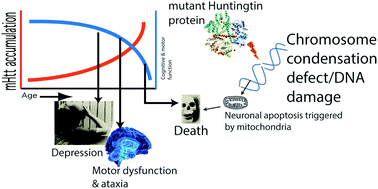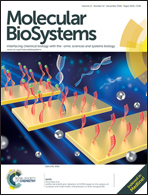A link between chromatin condensation mechanisms and Huntington's disease: connecting the dots
Abstract
Huntington's disease is a rare neurodegenerative disorder whose complex pathophysiology exhibits system-wide changes in the body, with striking and debilitating clinical features targeting the central nervous system. Among the various molecular functions affected in this disease, mitochondrial dysfunction and transcriptional dysregulation are some of the most studied aspects of this disease. However, there is evidence of the involvement of a mutant Huntingtin protein in the processes of DNA damage, chromosome condensation and DNA repair. This review attempts to briefly recapitulate the clinical features, model systems used to study the disease, major molecular processes affected, and, more importantly, examines recent evidence for the involvement of the mutant Huntingtin protein in the processes regulating chromosome condensation, leading to DNA damage response and neuronal death.


 Please wait while we load your content...
Please wait while we load your content...